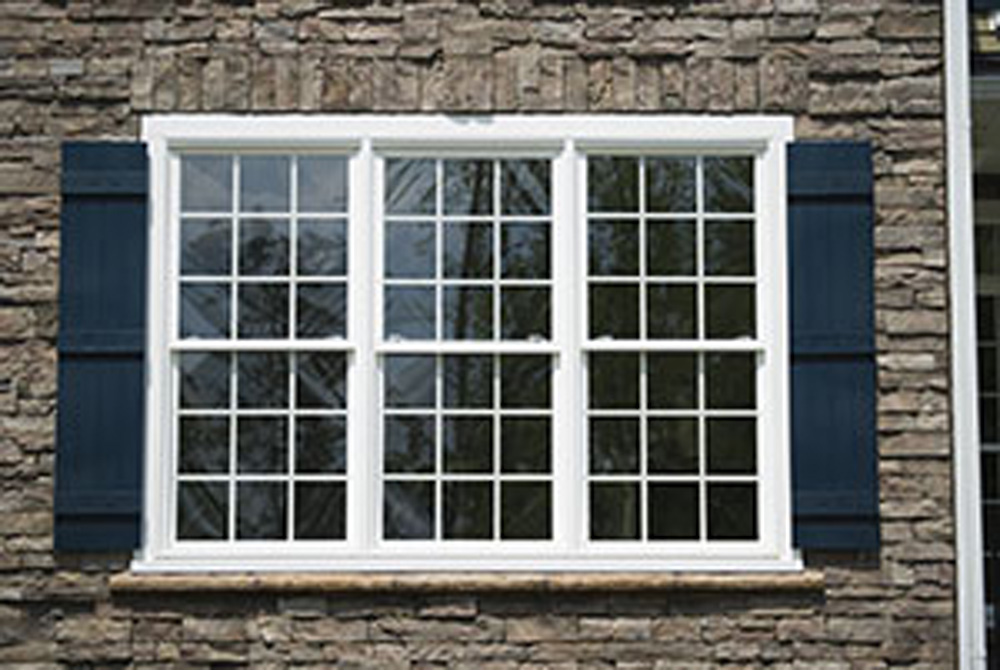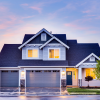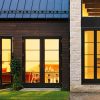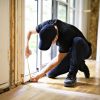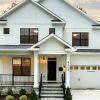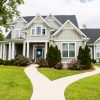Not all windows are energy efficient. In fact, there are certain criteria that have to be followed in order for a window to be labeled as such. It’s important that you know what to look for before shopping for windows to ensure you get more bang for the buck. So, what exactly makes a window energy efficient? Let’s take a closer look.
What is Energy Efficiency?
Energy efficiency means using less energy for the same service. For example, an old drafty window will probably use more energy than a new window would. Increasing energy efficiency often costs money up-front but in many cases, it will be paid back in the form of reduced energy costs within a couple of years. This makes efficiency upgrades sought after in order to help reduce carbon emissions.
A window’s energy efficiency is dependent upon all of its parts. Window frames produce heat, contributing to a window’s overall energy efficiency, particularly its U-factor. A U-factor is a number used to rate energy loss; the lower the number, the greater a window’s resistance to heat flow and the better it insulates.
Glazing or glass technologies have become very popular, and window companies often specify different types of glazing or glass they use for different windows. These are largely dependant on location, climate, building design and more. Another important consideration is the type of window, such as casement, awning, slider, etc. Some operating types leak air more than others.
One more energy efficient factor to consider is the solar heat gain coefficient, or SHGC. This refers to the fraction of solar radiation admitted through a window as heat gain. SHGC is expressed as a number between 0 and 1; the lower a window’s solar heat gain coefficient, the less solar heat it transmits. Solar heat gain is influenced by the glazing type, the number of panes, and any glass coatings.
Improving the Energy Efficiency of Existing Windows
You can help improve the energy efficiency of your existing windows by caulking around window frames, weatherstripping, using window treatments and installing storm windows. By installing new storm windows, caulking and weatherstripping, you can reduce air leakage. Use caulk for stationary cracks, gaps, or joints less than one-quarter-inch wide. Even if you don’t see cracks or holes, it’s best to do this atleast once a year. Window treatments or coverings can help reduce heat loss in the winter and heat gain in the summer, but most aren’t effective at reducing air leakage.
Selecting New Energy-Efficient Windows
If your home has older windows, it might be more cost-effective to replace them than to try to improve their energy efficiency. As stated before, energy-efficient windows eventually pay for themselves through lower energy costs. Improving window performance in your home depends on all three of these factors to work together: design, selection and installation.
Warm Weather Window Tips
Install white curtains and blinds to reflect heat away from the house.
Close curtains during the day when you’re gone.
Install awnings on your windows.
Apply reflective films on windows to reduce solar heat gain.
Cold Weather Window Tips
Use a heavy-duty, clear plastic sheet secured with tape on the frame of the windows indoors. This will help reduce cold drafts.
Install tight-fitting window shades on any windows that feel drafty.
Open your curtains and shades during the day to bring in heat from the sun.
Install interior or exterior storm windows which can help to reduce heat loss.
Repair and winterize your current storm windows, if needed.
To learn more about replacing your current windows with new, energy efficient windows, contact us at Precision Windows & Doors. You’ll receive a free estimate by calling 816-524-8999 or 913-649-1199.
About Precision Siding & Windows
Precision Siding & Windows offers premium replacement windows, siding, doors, garage doors, and installation. Our friendly, experienced staff arrives on time and works quickly to complete your home improvements or commercial construction including work on windows, doors, siding, guttering, and roofing.
With over 30 years of experience serving customers in Overland Park, Leawood, Parkville, Kansas City, Ottawa, Lee’s Summit, and even more areas within a 50-mile radius, we guarantee you’ll be satisfied with our high quality of work. Contact us for a free, no-pressure estimate to get started, and ask us about no-interest financing!

